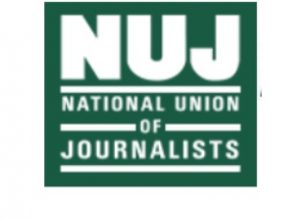 The MJA occasionally receives inquiries about a code of conduct. The EC has decided against drafting a formalised code of our own, but would like to draw members’ attention to the NUJ code of conduct and hope that would strive to adhere to these professional principles.
The MJA occasionally receives inquiries about a code of conduct. The EC has decided against drafting a formalised code of our own, but would like to draw members’ attention to the NUJ code of conduct and hope that would strive to adhere to these professional principles.
The NUJ’s code of conduct has set out the main principles of UK and Irish journalism since 1936.
NUJ Code of Conduct
A journalist:
- At all times upholds and defends the principle of media freedom, the right of freedom of expression and the right of the public to be informed.
- Strives to ensure that information disseminated is honestly conveyed, accurate and fair.
- Does her/his utmost to correct harmful inaccuracies.
- Differentiates between fact and opinion.
- Obtains material by honest, straightforward and open means, with the exception of investigations that are both overwhelmingly in the public interest and which involve evidence that cannot be obtained by straightforward means.
- Does nothing to intrude into anybody’s private life, grief or distress unless justified by overriding consideration of the public interest.
- Protects the identity of sources who supply information in confidence and material gathered in the course of her/his work.
- Resists threats or any other inducements to influence, distort or suppress information and takes no unfair personal advantage of information gained in the course of her/his duties before the information is public knowledge.
- Produces no material likely to lead to hatred or discrimination on the grounds of a person’s age, gender, race, colour, creed, legal status, disability, marital status, or sexual orientation.
- Does not by way of statement, voice or appearance endorse by advertisement any commercial product or service save for the promotion of her/his own work or of the medium by which she/he is employed.
- A journalist shall normally seek the consent of an appropriate adult when interviewing or photographing a child for a story about her/his welfare.
- Avoids plagiarism.


Recent Comments